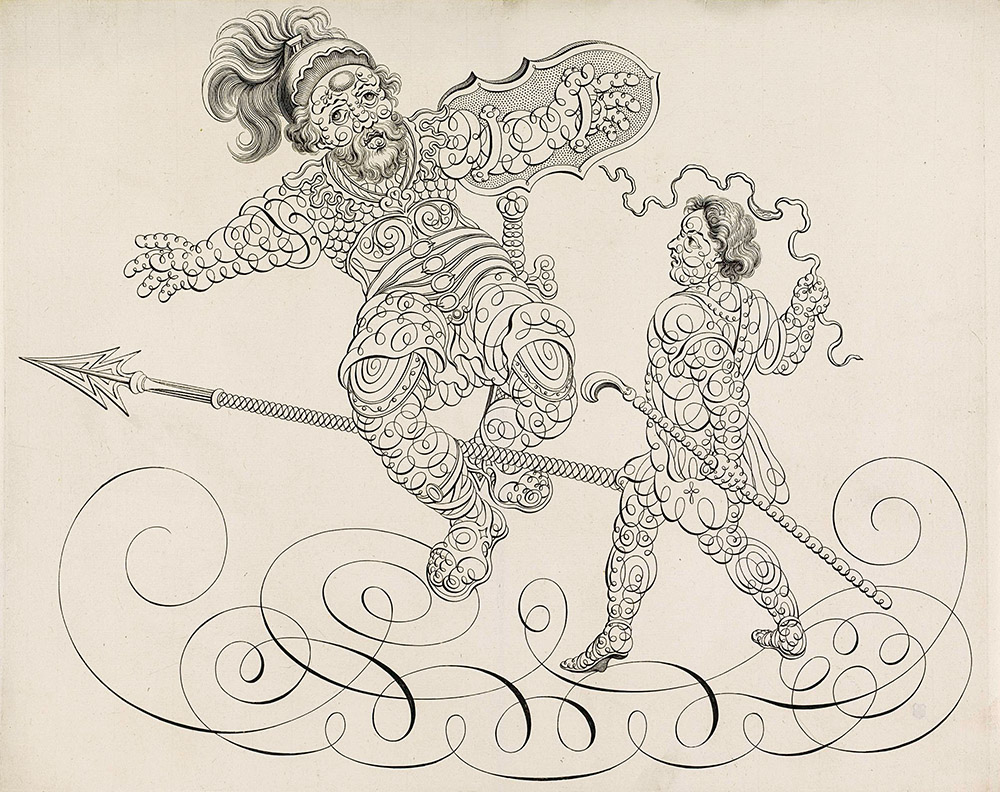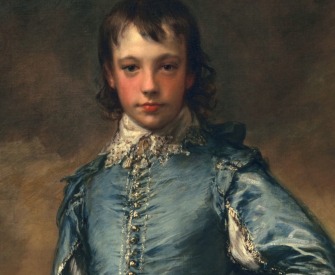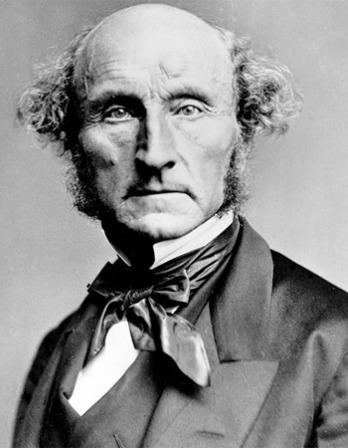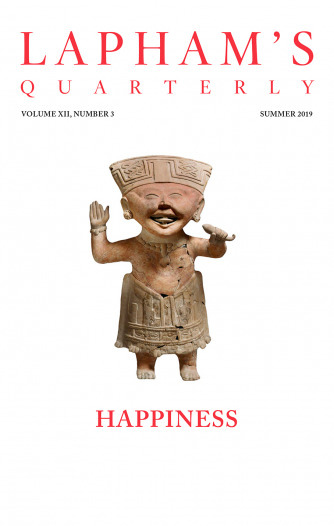Better a thousand enemies outside the house than one inside.
—Arabic proverb,Class Warfare
Jane Austen on family connections.
As soon as they entered the copse, Lady Catherine began in the following manner:
“You can be at no loss, Miss Bennet, to understand the reason of my journey hither. Your own heart, your own conscience, must tell you why I come.”
Elizabeth looked with unaffected astonishment.
“Indeed, you are mistaken, madam. I have not been at all able to account for the honor of seeing you here.”
“Miss Bennet,” replied her ladyship in an angry tone, “you ought to know that I am not to be trifled with. But however insincere you may choose to be, you shall not find me so. My character has ever been celebrated for its sincerity and frankness, and in a cause of such moment as this, I shall certainly not depart from it. A report of a most alarming nature reached me two days ago. I was told that not only your sister was on the point of being most advantageously married, but that you, that Miss Elizabeth Bennet, would in all likelihood be soon afterward united to my nephew, my own nephew, Mr. Darcy. Though I know it must be a scandalous falsehood, though I would not injure him so much as to suppose the truth of it possible, I instantly resolved on setting off for this place, that I might make my sentiments known to you.”
“If you believed it impossible to be true,” said Elizabeth, coloring with astonishment and disdain, “I wonder you took the trouble of coming so far. What could your ladyship propose by it?”
“At once to insist upon having such a report universally contradicted.”
“Your coming to Longbourn to see me and my family,” said Elizabeth coolly, “will be rather a confirmation of it, if, indeed, such a report is in existence.”
“If! Do you then pretend to be ignorant of it? Has it not been industriously circulated by yourselves? Do you not know that such a report is spread abroad?”
“I never heard that it was.”
“And can you likewise declare, that there is no foundation for it?”
“I do not pretend to possess equal frankness with your ladyship. You may ask questions which I shall not choose to answer.”
“This is not to be borne! Miss Bennet, I insist on being satisfied. Has he, has my nephew, made you an offer of marriage?”
“Your ladyship has declared it to be impossible.”
“It ought to be so; it must be so, while he retains the use of his reason. But your arts and allurements may, in a moment of infatuation, have made him forget what he owes to himself and to all his family. You may have drawn him in.”
“If I have, I shall be the last person to confess it.”

The Combat of Rama and Ravana (detail), Indian tapestry, late eighteenth century. © British Library Board / Robana / Art Resource, NY.
“Let me be rightly understood. This match, to which you have the presumption to aspire, can never take place. No, never. Mr. Darcy is engaged to my daughter. Now what have you to say?”
“Only this; that if he is so, you can have no reason to suppose he will make an offer to me.”
Lady Catherine hesitated for a moment and then replied, “The engagement between them is of a peculiar kind. From their infancy, they have been intended for each other. While in their cradles, we planned the union: and now, at the moment when the wishes of both sisters would be accomplished in their marriage, to be prevented by a young woman of inferior birth, of no importance in the world and wholly unallied to the family? Have you not heard me say that from his earliest hours he was destined for his cousin?”
“Yes, and I had heard it before. But what is that to me? If there is no other objection to my marrying your nephew, I shall certainly not be kept from it by knowing that his mother and aunt wished him to marry Miss de Bourgh. You both did as much as you could in planning the marriage. Its completion depended on others. If Mr. Darcy is neither by honor nor inclination confined to his cousin, why is not he to make another choice? And if I am that choice, why may not I accept him?”
“Because honor, decorum, prudence, nay, interest, forbid it. Yes, Miss Bennet, interest; for do not expect to be noticed by his family or friends if you willfully act against the inclinations of all. You will be censured, slighted, and despised by everyone connected with him. Your alliance will be a disgrace; your name will never even be mentioned by any of us.”
“These are heavy misfortunes,” replied Elizabeth. “But the wife of Mr. Darcy must have such extraordinary sources of happiness necessarily attached to her situation that she could, upon the whole, have no cause to repine.”
“Obstinate, headstrong girl! I am ashamed of you! Is this your gratitude for my attentions to you last spring? Is nothing due to me on that score? Let us sit down. You are to understand, Miss Bennet, that I came here with the determined resolution of carrying my purpose; nor will I be dissuaded from it. I have not been used to submit to any person’s whims. I have not been in the habit of brooking disappointment.”
“That will make your ladyship’s situation at present more pitiable; but it will have no effect on me.”
“I will not be interrupted. Hear me in silence. My daughter and my nephew are formed for each other. They are descended, on the maternal side, from the same noble line and, on the father’s, from respectable, honorable, and ancient—though untitled—families. Their fortune on both sides is splendid. They are destined for each other by the voice of every member of their respective houses; and what is to divide them? The upstart pretensions of a young woman without family, connections, or fortune. Is this to be endured! But it must not, shall not be. If you were sensible of your own good, you would not wish to quit the sphere in which you have been brought up.”
“In marrying your nephew, I should not consider myself as quitting that sphere. He is a gentleman; I am a gentleman’s daughter; so far we are equal.”
“True. You are a gentleman’s daughter. But who was your mother? Who are your uncles and aunts? Do not imagine me ignorant of their condition.”
“Whatever my connections may be,” said Elizabeth, “if your nephew does not object to them, they can be nothing to you.”
“Tell me once for all, are you engaged to him?”
Though Elizabeth would not, for the mere purpose of obliging Lady Catherine, have answered this question, she could not but say after a moment’s deliberation, “I am not.”
Lady Catherine seemed pleased.
“And will you promise me never to enter into such an engagement?”
“I will make no promise of the kind.”
“Miss Bennet, I am shocked and astonished. I expected to find a more reasonable young woman. But do not deceive yourself into a belief that I will ever recede. I shall not go away till you have given me the assurance I require.”
“And I certainly never shall give it. You have widely mistaken my character if you think I can be worked on by such persuasions as these. How far your nephew might approve of your interference in his affairs, I cannot tell; but you have certainly no right to concern yourself in mine. I must beg, therefore, to be importuned no further on the subject.”
“Not so hasty, if you please. I have by no means done. To all the objections I have already urged, I have still another to add. I am no stranger to the particulars of your youngest sister’s infamous elopement. I know it all; that the young man’s marrying her was a patched-up business, at the expense of your father and uncles. And is such a girl to be my nephew’s sister? Is her husband, is the son of his late father’s steward, to be his brother? Heaven and earth—of what are you thinking? Are the shades of Pemberley to be thus polluted?”

David and Goliath rendered in curlicues, German engraving, eighteenth century. Rijksmuseum, Gift of F.G. Waller, Amsterdam.
“You can now have nothing further to say,” she resentfully answered. “You have insulted me in every possible method. I must beg to return to the house.”
And she rose as she spoke. Lady Catherine rose also, and they turned back. Her ladyship was highly incensed.
“You have no regard, then, for the honor and credit of my nephew! Unfeeling, selfish girl! Do you not consider that a connection with you must disgrace him in the eyes of everybody?”
“Lady Catherine, I have nothing further to say. You know my sentiments.”
“You are then resolved to have him?”
“I have said no such thing. I am only resolved to act in that manner which will, in my own opinion, constitute my happiness, without reference to you or to any person so wholly unconnected with me.”
“Do not imagine, Miss Bennet, that your ambition will ever be gratified. I came to try you. I hoped to find you reasonable; but, depend upon it, I will carry my point.”
In this manner, Lady Catherine talked on till they were at the door of the carriage, when, turning hastily round, she added, “I take no leave of you, Miss Bennet. I send no compliments to your mother. You deserve no such attention. I am most seriously displeased.”

Jane Austen
From Pride and Prejudice. In 2011 the novelist V.S. Naipaul gave an interview at the Royal Geographical Society; in it he criticized Jane Austen for her “sentimental view of the world” and claimed that he could know “within a paragraph or two” whether a piece of writing was by a woman. In response, the writer Ayelet Waldman offered that “Austen might have eviscerated the egotistical (if brilliant) Naipaul with a single excessively polite remark,” though she probably wouldn’t have put it on social media. “Only those of us with impulse-control issues take our snits into the ether.”




